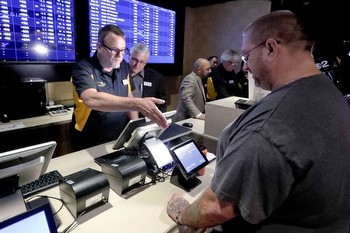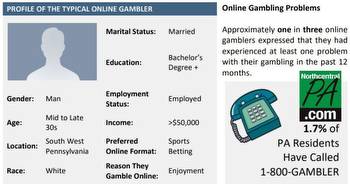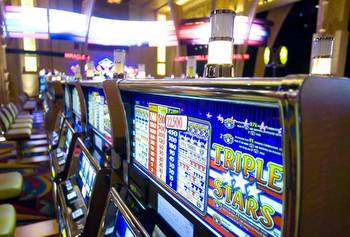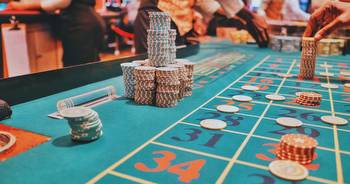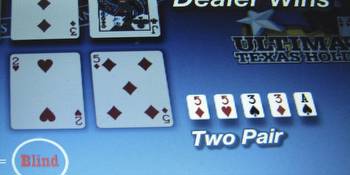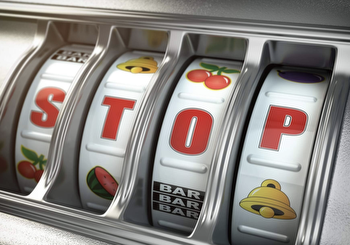March Madness reminds us of gambling problems
The amount of money wagered on college basketball during March Madness is insane. According to statistics compiled for this year’s Problem Gambling Awareness Month, one in five of us is expected to gamble either on an online site, casino sportsbook location or in an office pool. In total, we’ll be spending more than $10 billion before the college champ is crowned on April 3.
Spoiler alert: I paid $11 to enter a CBS network affiliate pool. During a weekend visit to Atlantic City, I also placed a $5 bet at Harrah’s Sportsbook on one NCAA Tournament game and won $9.55. I quit while I was ahead.
A man in front of me wagered $2,500, I guess figuring that second-seeded Arizona, despite a 14.5-point spread, would beat up on the Ivy League champ, 15th-seeded Princeton pretty easily. The Tigers shocked the Wildcats 59-55 on Thursday.
Just as I do, most adults can gamble recreationally with no problems. Sadly, there are millions of Americans with a serious gambling problem, in some cases costing them their family, their marriage, their home and their livelihood.
We probably know someone who falls into this category. It might be a family member, a friend or an acquaintance. One of my late uncles was afflicted in this way, and it basically destroyed everything that he held near and dear.
In recognizing March in this manner, the state Gaming Control Board is promoting resources to help those who have a gambling problem. Elizabeth Lanza, director of the board’s Office of Compulsive and Problem Gambling, said that there is one resource in particular that will link Pennsylvanians to gambling disorder resources.
“I urge Pennsylvanians who are seeking help for a gambling disorder to contact the PA problem gambling helpline by calling 1-800-GAMBLER where trained specialists will direct callers to treatment options available locally and statewide,” Lanza said.
Kevin O’Toole, gaming board executive director, said the board and the state gaming industry recognizes the importance of problem gambling outreach. “While most Pennsylvanians can gamble responsibly, we must not forget about the 2%-4% of the population who will develop a gambling disorder within their lifetime,” O’Toole said. “Although the board requires licensees to have safeguards in place, several licensees have expanded their outreach by partnering with national, state and local organizations to sponsor training and outreach events and to provide even more problem-gambling resources.”
As part of an op-ed piece co-authored by former state Sen. Pat Browne of Allentown, who is now the state’s Revenue Secretary, he points out that a gambling disorder is often referred to as a “hidden addiction,” as it can be more challenging to detect than other addictions.
“It is a chronic and progressive disease, much like alcoholism or drug addiction. It’s best to confront the problem early while there’s still time to get help before it becomes problematic,” wrote Browne and Josh Ercole, executive director of the Council on Compulsive Gambling of Pennsylvania, a nonprofit that provides information and resources on problem gambling.
My weekend visit to Harrah’s reminded me of the informative booklet that the Caesars Entertainment Co. put out advising patrons that their chances of beating the house are slim.
“Whether you play slots, craps, blackjack, roulette or any other game in a casino, it is important to remember that games of chance are based on random outcomes and always favor the casino,” the brochure said. “These games of chance are a form of entertainment, at a price to you, the player; casino gaming should not be considered a way to make money,” the brochure warns.
I am really impressed with the honesty of this brochure, which is certainly a departure from the rah-rah types of promotions I am used to seeing. There’s a section on myths and superstitions. “Magical thinking has no impact whatsoever on the outcome of which dice combination, sequence of cards or the number that will come up on a roulette wheel. Aside from cheating, there’s nothing a player can do - no ritual and no lucky charm - to influence the outcome of any casino game. Superstitions can’t determine whether a player wins or loses, because every casino game is based on randomness or chance.’’
The brochure says to understand gambling, the gambler must realize the concept of “independent events.” This means that the chances of a specific outcome remain the same and are not influenced by previous events.
When the casino itself tells you that you cannot win, that the reason the casino is in business is to make money - big money - it should be a cautionary warning to anyone who is convinced that he or she is the exception, the one to defy the odds. This mindset makes you the casino’s newest best friend forever. By the way, this goes for every other form of gambling, too.
By Bruce Frassinelli | tneditor@tnonline.com
The foregoing opinions do not necessarily reflect the views of the Editorial Board or Times News LLC.








